| When | Activity |
|---|---|
| Introductions | |
| 1330-1345 | TMCFs + Turing – Andrew Duncan |
| 1345-1400 | Our TMCF – Cagatay Turkay, Roger Beecham |
| Panel + talks | |
| 1400-1445 | Talk1 – Jo Wood |
| 1400-1445 | Talk2 – Rachel Franklin |
| 1400-1445 | Talk3 – Hadley Wickham |
| 1400-1445 | Panel – All |
| 1445-1515 | Break |
| Outputs + call-to-action | |
| 1515-1530 | wide data analysis – Cagatay Turkay, Roger Beecham |
| 1530-1545 | Call-to-action and SI – Cagatay Turkay, Roger Beecham |
| 1545--1620 | Workshop discussion – All |
| 1620-1630 | Close – Cagatay Turkay, Roger Beecham |
TMCF 2024
Navigating the garden of forking paths in data-driven science
7th February 2025
Huge thanks to the Turing Team

Our TMCF:
Forking paths and data-driven science
What does good* data-driven science look like?
——————–
*defensible | rigorous | theoretically-informed
What does good* data-
driven science look like?
——————–
*defensible | rigorous | theoretically-informed
And how do we get there?
> explore ~ EDA
> pre-register
> test ~ CDA
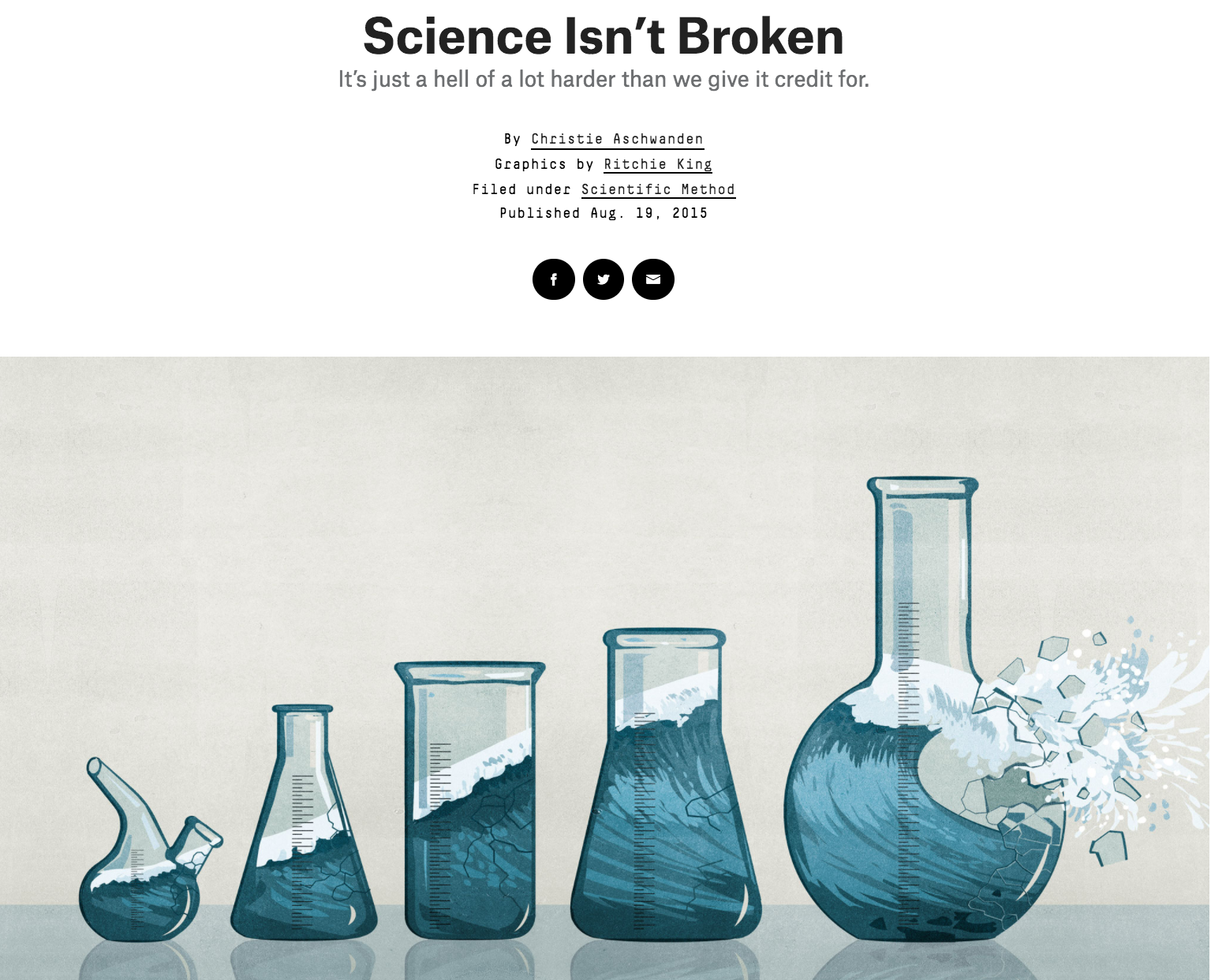
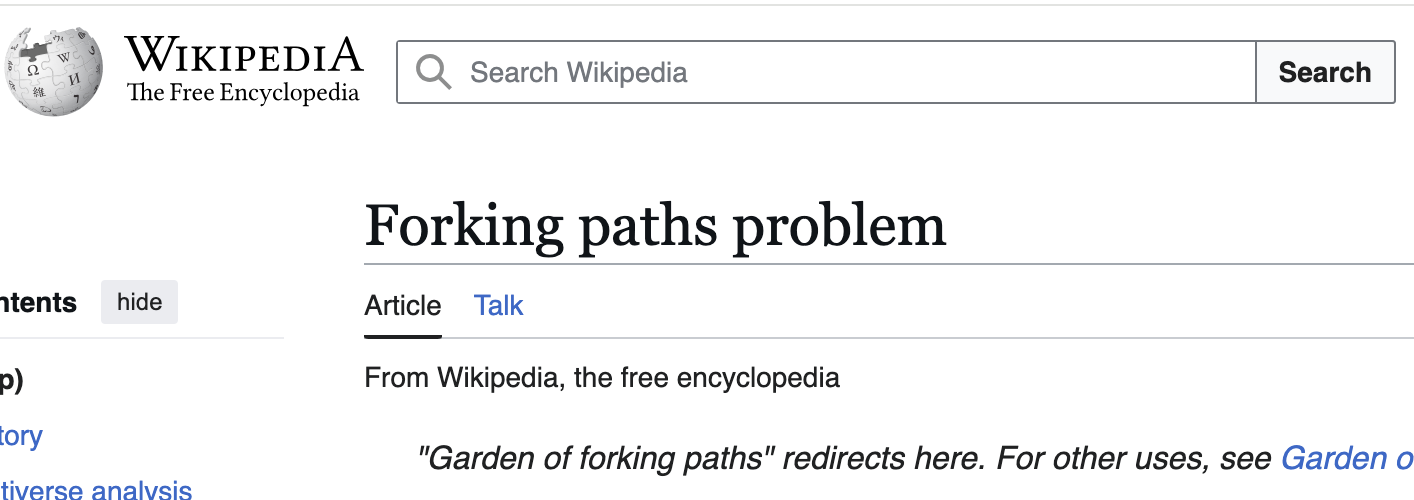
> explore ~ EDA
> pre-register
> test ~ CDA
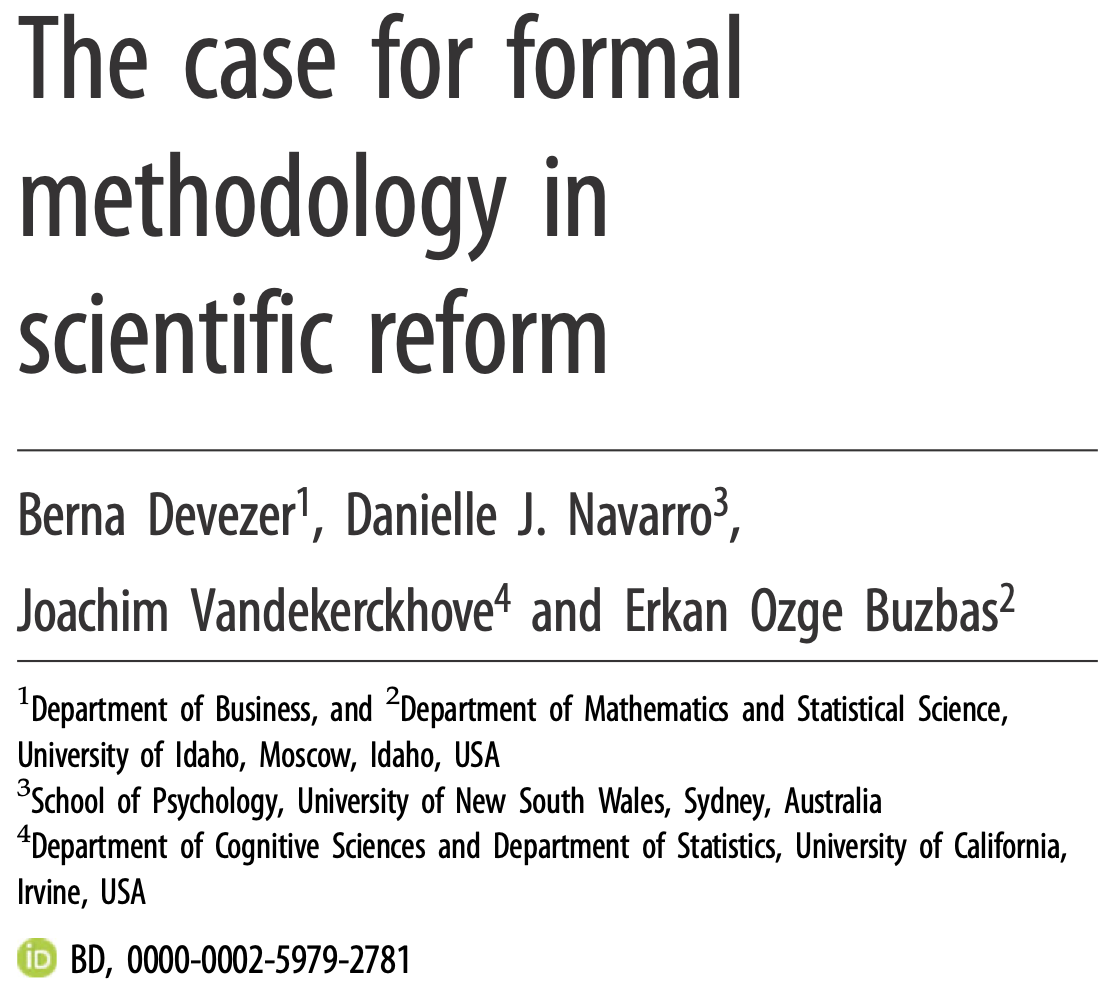
Many of the human errors we point out in data analysis can be attributed to a lack of ability to entertain multiple possibilities. We like to suppress and reduce uncertainty, not maintain it as we go.
Jessica Hullman, 2024
Exploratory research needs rigor to serve its intended aim of facilitating scientific discovery. Whichever method is selected […] it needs to be implemented rigorously to maximize the probability of true discoveries while minimizing the probability of false discoveries.
Devezer et al. 2021

Rigour
– Repeatable analysis plans
– Known inference protocols
– Expectations for size and stability of effects
Richness
– Evolving analysis plans
– Informal inference (multiplicity)
– Effects situated within descriptive context
Our TMCF:
Workshop and outputs

tmcf themes
1. Modelling paradigms
Establish what is distinctive about modelling in data-driven science by mapping out archetypal data-driven projects and the analysis practices they use.
2. Inference and replicability
How to plan and stage exploratory analysis? A grammar for structuring exploratory research findings so that inferences can be reported.
3. Tools and Enablers
How to enable exploratory research practices that are rich yet have rigour?
frameworks | techniques | analysis environments.
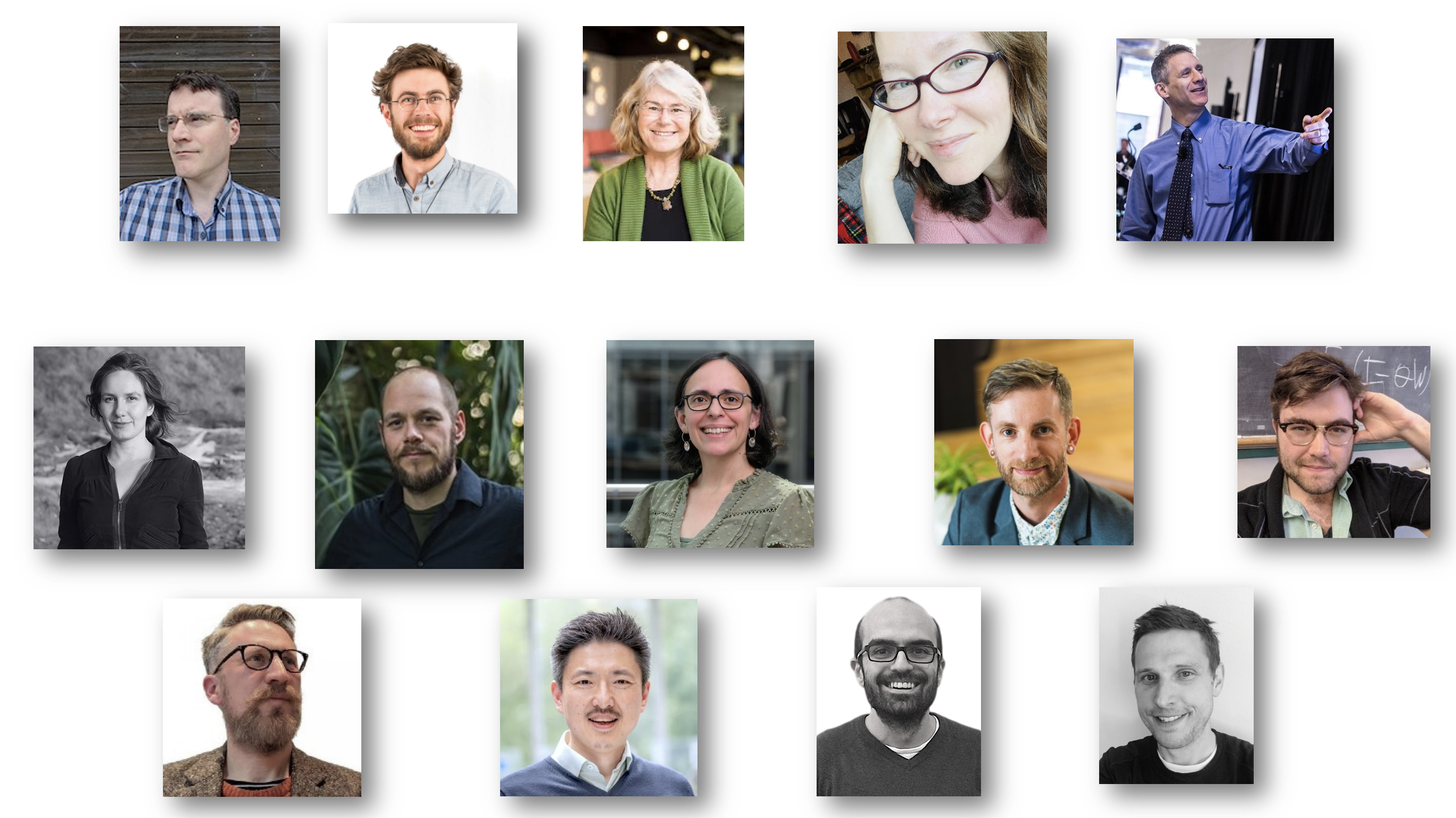
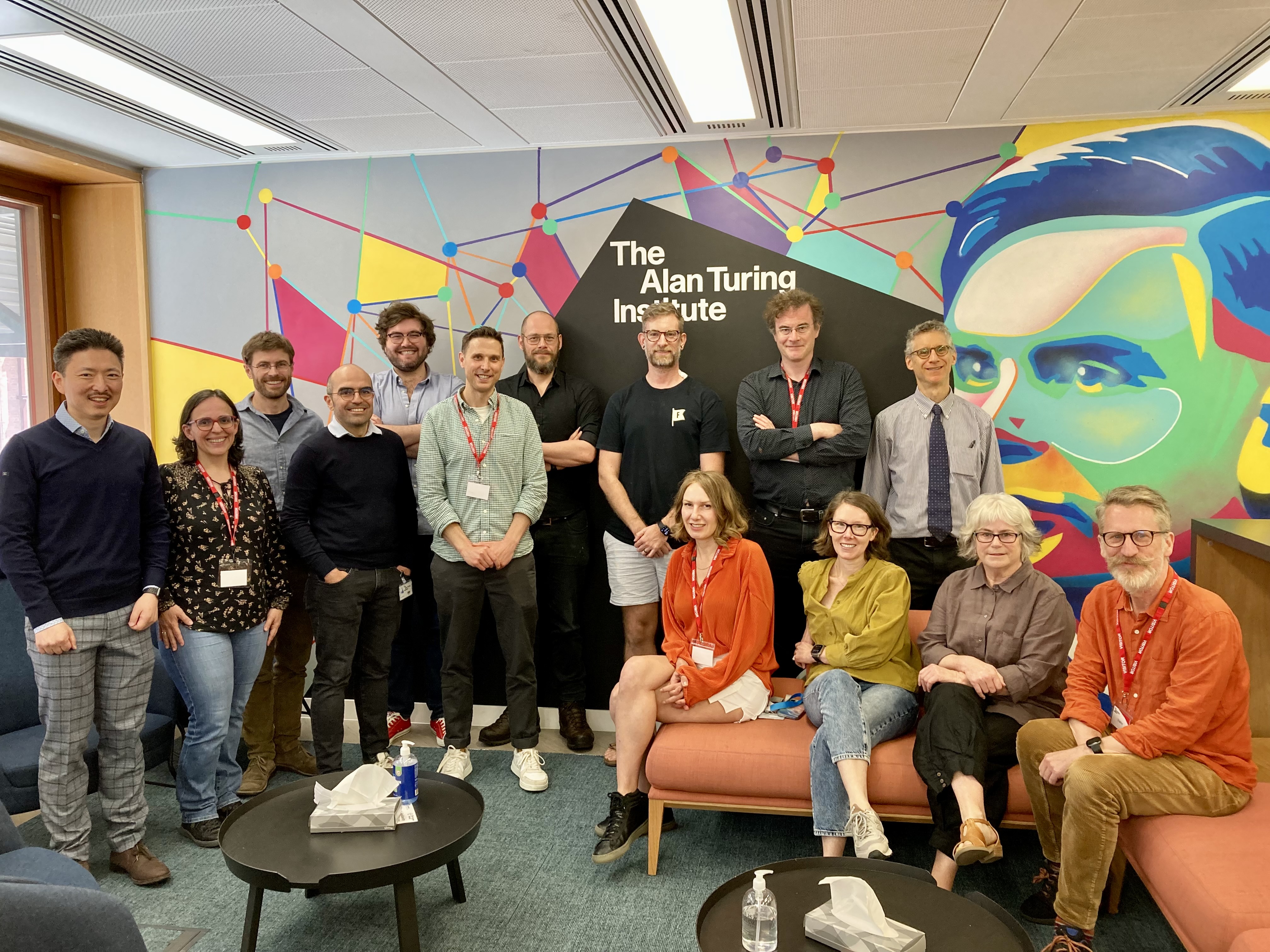
tmcf staging
Before
> Provocations
> 500-word position statements
During
> Testing position statements
> 1500-word blogs
> concept paper
After
> concept paper: [wide] data analysis
> call to action for [wide] applications
provocations
1. Modelling paradigms
– Heuristics trumps theory in data-driven research
– Models are exploratory artefacts
2. Inference and replicability
– Claims to knowledge can only be made through out-of-sample significance tests
– Pre-registration locks researchers into facile statistical tests
– Human-in-the-loop is incompatible with inferential and replicable analysis
3. Tools and Enablers
– Visualizations are limited as evidence
– There is no formal beginning, process or an end to an interactive data analysis session, it is all context-dependent
– Provenance of exploratory data analysis processes are too complex and ad hoc to be useful
provoking
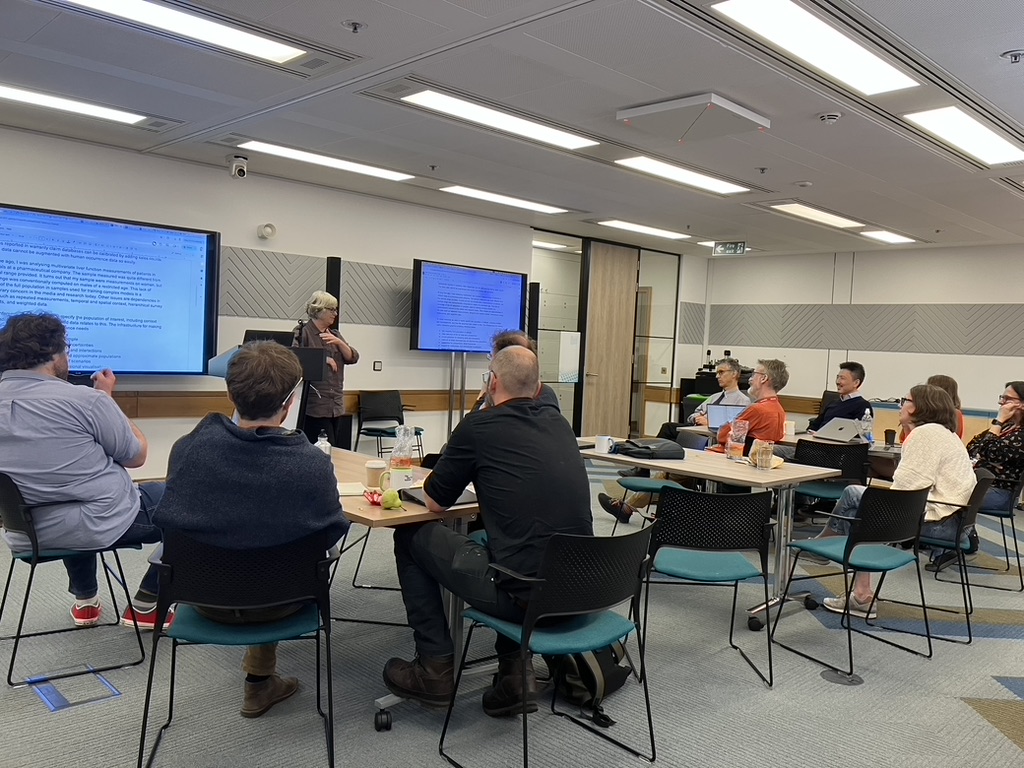
provoking: quotes

blogging

panelling
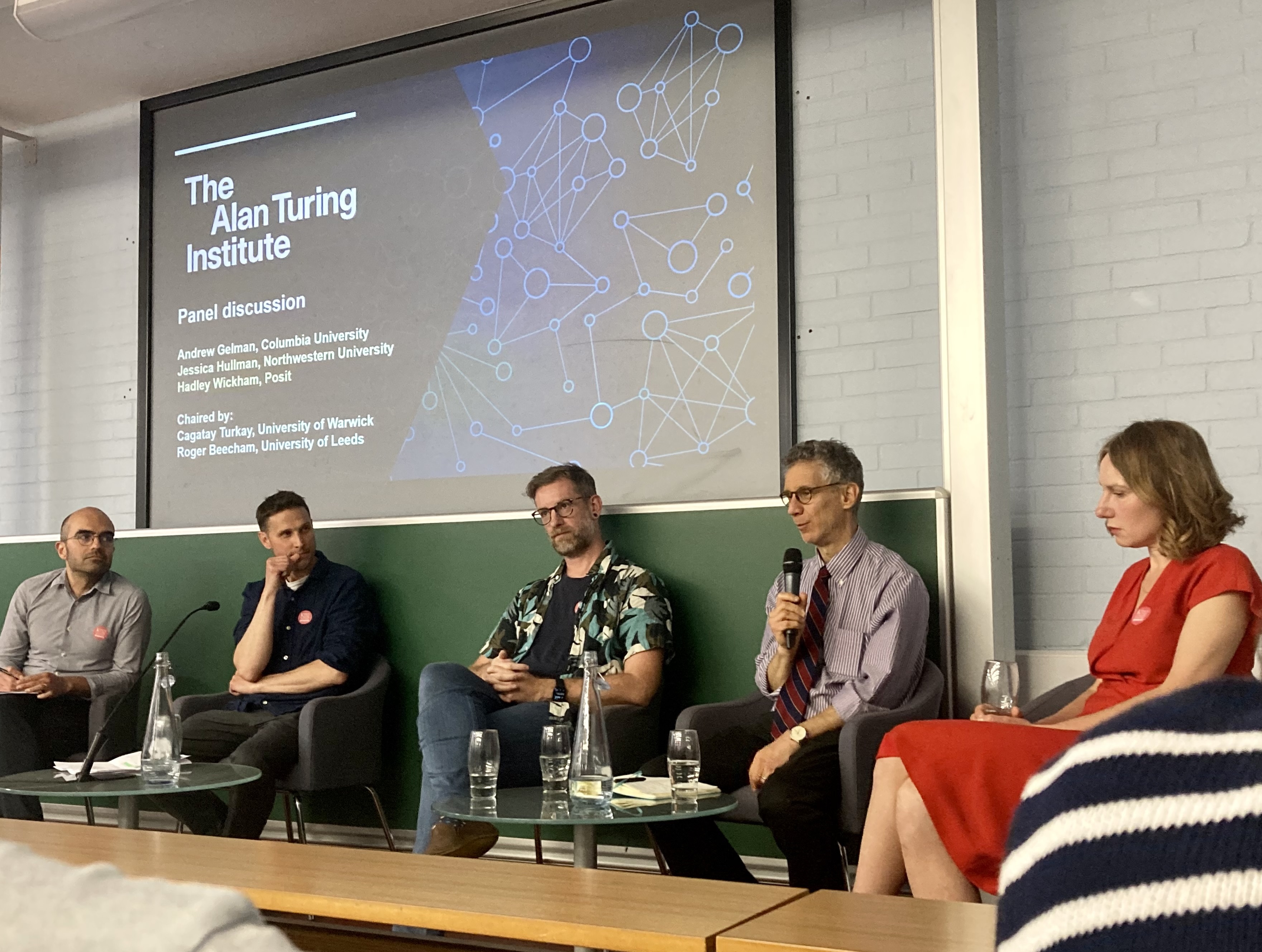
jogging
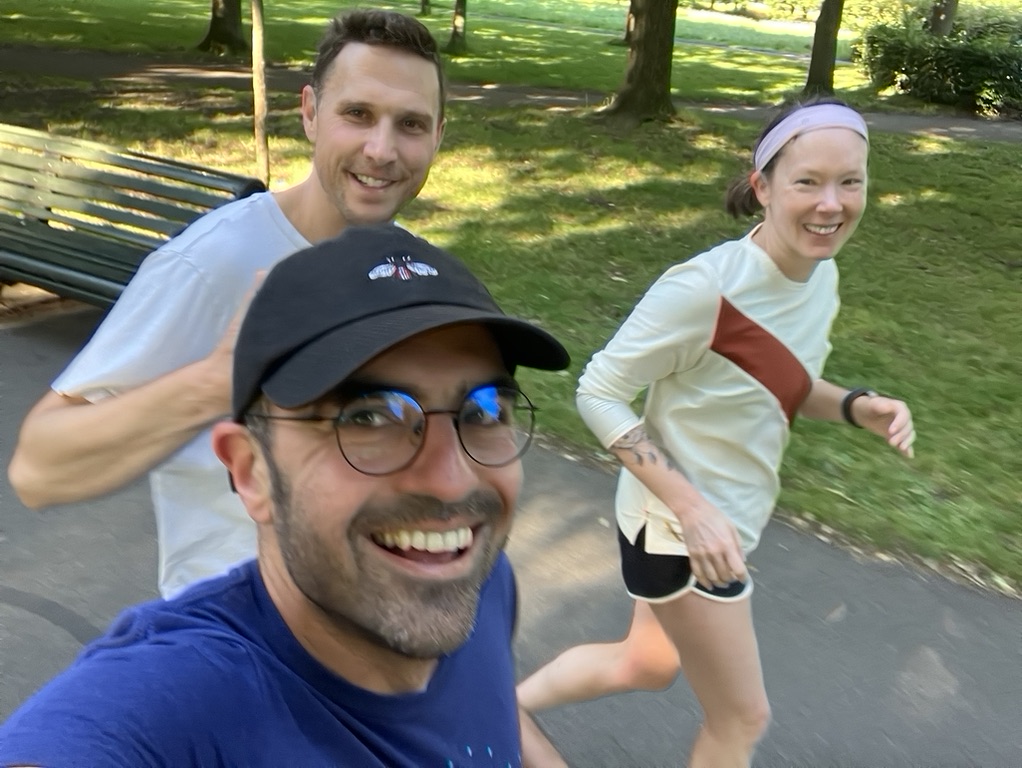
workshop
agenda
panel + talks
Communication is Design is Analysis is Communication
– Jo Wood
Locating the entrance to the garden of forking paths
– Rachel Franklin
wide Data Analysis
——————–
[E]nabling
[W]ide
[D]etailed and
[I]nteractive
data practice
wide data analysis

wide data analysis
Bring together diverse theories, methods, practices and traditions from across disciplines, e.g., statistics, political science, geography, computer science, etc.
An opportunistic overview/review of existing (good*) practice of modelling and data analysis
Consolidate these over a harmonising concept and provide usable/actionable building blocks
And a call-to-action for further research and development of enablers
wide data analysis
[W]idening
[W]idening the data analysis process involves considering a broader range of approaches than might otherwise be adopted. The aim is to encourage a mindset that is open to exploration, interpretation, multiple and complementary explanations []… They may be specific variations in some modelling parameterisation or more profound choices around methodological approach.
wide data analysis
[I]nteracting
[I]nteracting […] embraces the potential of human decision-making in every step of the data analysis workflow. We broaden its scope […] to include all points where a human decision shapes and responds to the analytic process. This might be in the parameterisation of a model, the choice of data source, the synthesis of results – a touchpoint in the workflow that ties analysis to its underlying goals.
wide data analysis
[D]etailing
[D]etailing […] providing explicit accounts of the data analysis process in order to support scrutiny and interpretation and epistemological reflection. […] [D]etail may include rich descriptive documentation of process and context, justifications of choices made, interpretations of results and reflections on the workflow.
wide data analysis
[E]nabling
[E]nabling involves making the adoption of widening, interacting and detailing strategies as easy as possible. […] wide data analysis may not be implemented in practice if the cost of doing so is perceived as too high. In this paper we propose […] mechanisms by which we might enable more rigorous data analysis and provide a call to action to develop new enabling tools and practices.
wide foundations
Ways of thinking wide

wide foundations
Ways of doing wide
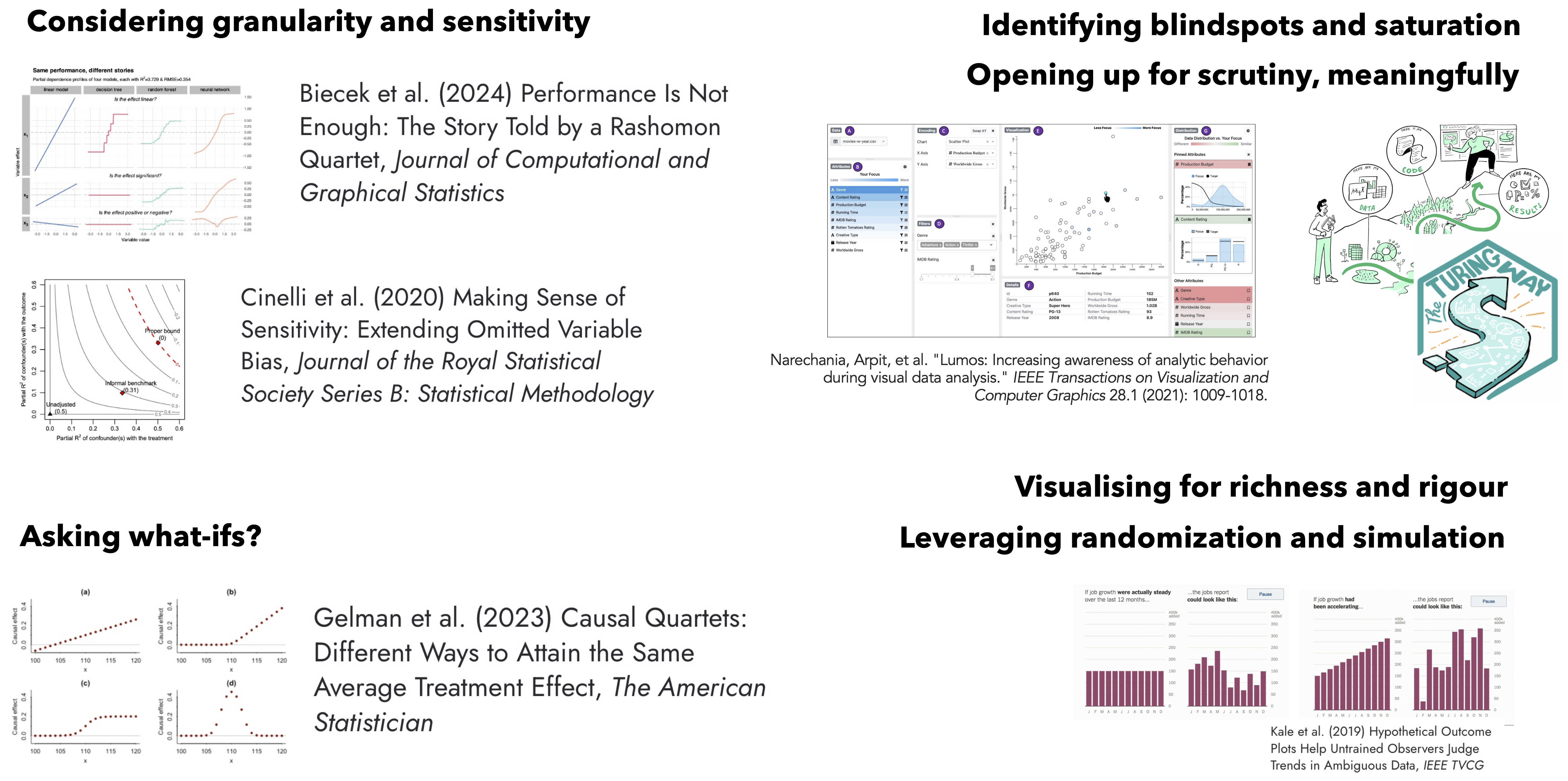
wide prompting questions
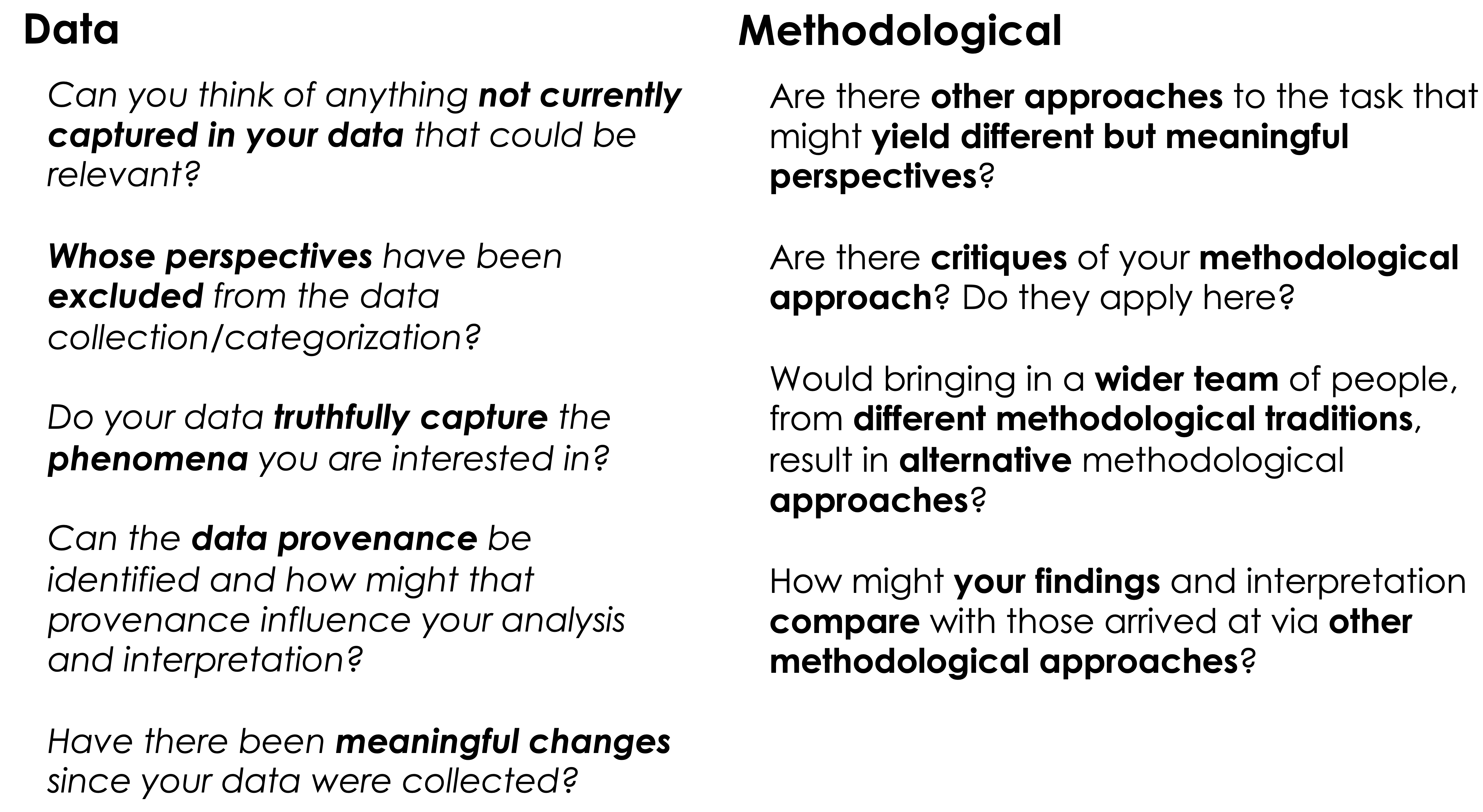
wide prompting questions
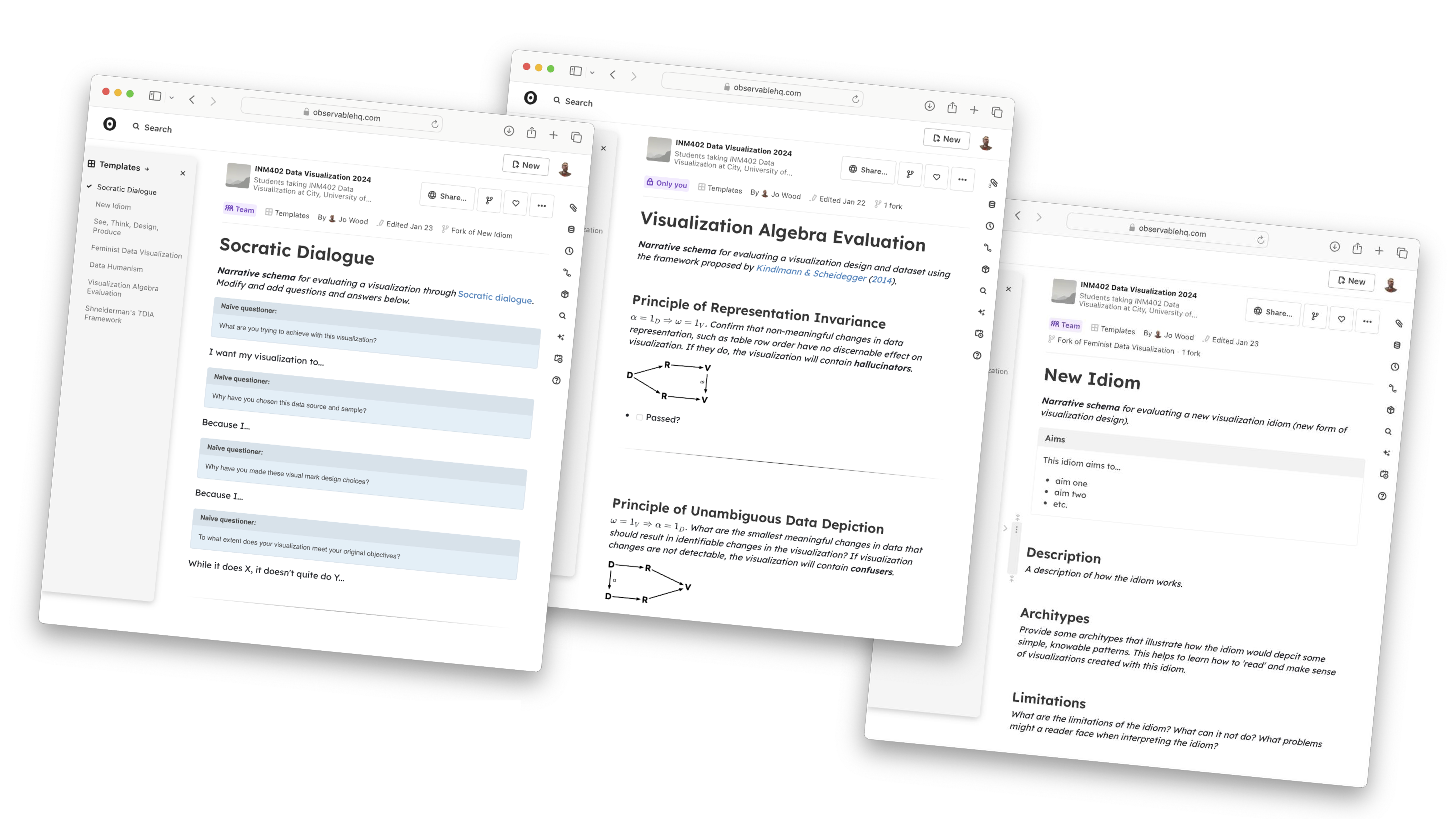
Wood et al. (2019) Design Exposition with Literate Visualization,
IEEE Transactions on Visualization and Computer Graphics
wide case study

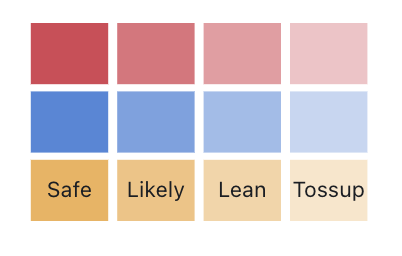
wide call-to-action

> Case studies
> Methods
> Tools
wide call-to-action

EoI for papers
– Spring 2025
| When | Activity |
|---|---|
| Introductions | |
| 1330-1345 | TMCFs + Turing – Andrew Duncan |
| 1345-1400 | Our TMCF – Cagatay Turkay, Roger Beecham |
| Panel + talks | |
| 1400-1445 | Talk1 – Jo Wood |
| 1400-1445 | Talk2 – Rachel Franklin |
| 1400-1445 | Talk3 – Hadley Wickham |
| 1400-1445 | Panel – All |
| 1445-1515 | Break |
| Outputs + call-to-action | |
| 1515-1530 | wide data analysis – Cagatay Turkay, Roger Beecham |
| 1530-1545 | Call-to-action and SI – Cagatay Turkay, Roger Beecham |
| 1545--1620 | Workshop discussion – All |
| 1620-1630 | Close – Cagatay Turkay, Roger Beecham |
workshop
agenda

TMCF 2024 | British Library